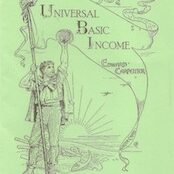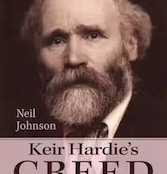As power-sharing devolution emerges in Northern Ireland, PAUL DIXON wonders how long the political peace will last.
On 8 May 2007 devolution was restored to Northern Ireland as Ian Paisley of the Democratic Unionist Party and Martin McGuinness of Sinn Fein were sworn in as First and Deputy First Minister. The lion has lain down with the lamb.
After 3,722 deaths the Northern Ireland conflict had been ‘solved’. Tony Blair’s greatest achievement as prime minister came to fruition shortly before his departure from office, yet scepticism was not allowed to intrude on the hype that surrounded the celebrations marking the return to devolution.
The British prime minister characterised the Northern Ireland conflict as an ‘irrational’ one in the ‘modern world’. Yet he has also sought to portray it as a model for conflict management everywhere, particularly the Middle East. The key lesson is, ‘to persevere, never to give up, never to accept that the true will of the people is conflict when they are given the chance to live in peace.
‘The leaders played their part,’ he said. ‘But, ultimately, the people gave the leadership. They set the terms. They held us all to them. They gave the final imprimatur. And in doing so, they did a power of good for optimists everywhere. So, on this historic day, my final thanks is to them.’
The Secretary of State for Northern Ireland, Peter Hain, argued that the deal on devolution would be stable: ‘It’s going to stick, I believe, because the DUP and Sinn Fein are the two most polarised forces in Northern Ireland’s politics, they have done the deal and that’s why I believe it’s here to stay for good.’
Moderates
There are two types of sceptics of the DUP/SF deal – the ‘ultras’ and the ‘moderates’. Moderate sceptics argue that an ‘imperfect peace’, to coin Mo Mowlam’s phrase, is better than no peace at all. But there are at least three lines of criticism.
First, questions should be asked about whether the Labour government – and other partners in the peace process – such as the Irish government and the US president – did enough to support the moderate SDLP and UUP during the peace process? It became obvious soon after the Good Friday Agreement was signed in 1998 that David Trimble and pro-Agreement unionism faced severe difficulties, but he was asked to stretch again and again to keep ‘the bicycle’ moving forward.
Secondly, the dominance of the DUP and Sinn Fein in Northern Ireland represents the triumph of the most sectarian and antagonistic elements in Northern Irish society. This is hardly a cause for celebration. Both parties have significantly moderated their positions but are still the parties that are most detested in the ‘other’ community. This is not surprising given the IRA’s record of violence against unionists and the DUP’s reputation for hostility and sectarianism towards nationalists. As leader of the SDLP Mark Durkan asked, can those who have ‘given us the worst of our past’ provide ‘the best of our future’?
Finally, while there is political agreement between the leadership of Sinn Fein and the DUP, there is not much sign of reconciliation at the popular level. Tony Blair is wrong. Voting behaviour and opinion polls do not suggest that the people of Northern Ireland have driven the peace process forward. The last ten years have seen repeated eruptions of sectarian tension during the marching season, the ‘sieges of Drumcree’, the Holy Cross dispute and rioting in north Belfast. The ‘troubles’ have seen growing residential segregation and there are now nearly 60 ‘peace walls’, a number which has increased during the peace process.
The trials and tribulations of the DUP/SF government are likely to throw up many issues that could be used to exploit communal antagonism, as they were during previous periods of devolution. The latest is the Sinn Fein demand that there be statues of republican heroes placed in the Stormont parliament building. The restoration of power-sharing devolution in Northern Ireland holds out the prospect of stable devolved government, although, at the moment, it stands on shaky foundations.
Ultras
The ‘ultras’ are the republican dissidents and the anti-powersharing loyalists. Republican dissidents believe that ‘armed struggle’ should continue to achieve Irish unity, but they have been marginalised. There is still a threat of violence from the Continuity and Real IRAs but, by contesting the March assembly elections, Republican Sinn Fein demonstrated their lack of popular support. In west Belfast, for example, the Republican Sinn Fein candidate won just 427 votes or 1.2 per cent of the vote.
The ‘ultra’, anti-powersharing loyalists probably pose a more significant threat to the DUP than republican ultras do to Sinn Fein. While Sinn Fein has transformed itself over a long period, the DUP’s shift in attitude towards power-sharing has been much more recent and dramatic. The DUP has emerged as the dominant party in the unionist community by opposing compromise with ‘IRA/Sinn Fein’.
The failed bid for power-sharing in December 2004 was clear evidence that the DUP might take the plunge and go for a deal with Sinn Fein. But as late as the assembly elections in March 2007, it was still not clear to the electorate that a vote for the DUP was a vote for power-sharing with Sinn Fein. The DUP trounced their moderate rivals with 30 per cent of the first preference vote to 15 per cent for the UUP.
Opinion polls, which notoriously underestimate hardline opinion, have indicated significant degrees of unionist opposition to power-sharing with Sinn Fein. Last November a poll suggested that while 47 per cent of DUP supporters favoured the St Andrews Agreement, 32 per cent opposed it and 22 per cent didn’t know. There have been severe tensions within the DUP. Jim Allister MEP, a leading figure in the DUP, has resigned from the party over power-sharing, as have several DUP councillors.
The emergence of the DUP as the dominant party within unionism, however, may have revived confidence among unionists that the Union is secure and that peace may last. As yet, there is no strong electoral challenge to Paisley from his ‘ultra’ flank.
Paul Dixon is Senior Lecturer in Politics & International Studies at Kingston University, London. He is author of Northern Ireland: The Politics of War and Peace (Macmillan, 2001).



22 October 2010
[…] ‘elections’ Thirteen wasted years Harry Barnes reflects on Blair’s failures (and successes) A time of peace? Paul Dixon wonders how long Northern Ireland’s political truce will last The right to the city […]